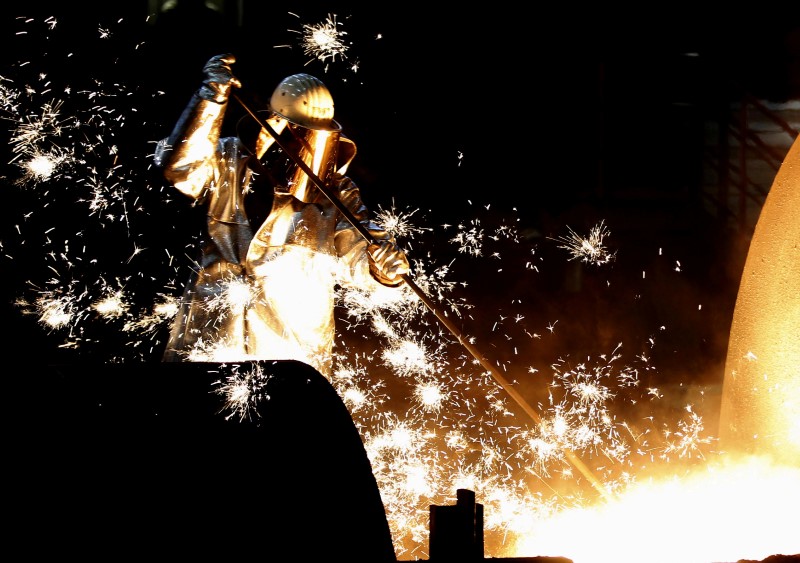By Michelle Martin
BERLIN (Reuters) - Foreign demand helped German industrial orders rebound in May, albeit less than forecast, data showed on Thursday, and the Economy Ministry said it expected this sector of Europe's largest economy to continue gathering some momentum.
Factories registered a 1.0 percent increase in orders in May after contracts for 'Made in Germany' goods dropped by a downwardly revised 2.2 percent in April, data from the Economy Ministry showed.
The reading for May undershot the Reuters forecast for a 2.0 percent rise, with the Economy Ministry saying the proportion of bulk orders was below average for May.
"The German industrial sector is back in form and the decline in April was likely a one-off," said Dirk Schlotboeller, an economist at Germany's Chambers of Commerce (DIHK).
"Although increasing protectionism around the world is dampening the mood, business is going extremely well in Europe, Asia and also in the USA," he said, adding that investment was finally picking up.
But others were less optimistic, with Alexander Krueger, economist at Bankhaus Lampe KG, saying the data was disappointing in view of bullish sentiment indicators such as Ifo, which showed business morale hitting a record high in June.
Bookings for capital goods picked up but factories making consumer and intermediate goods saw a downturn in demand.
A breakdown of the May data showed domestic demand tumbled by 1.9 percent while foreign orders climbed by 3.1 percent, with orders from outside the euro zone surging by 4.0 percent.
On the less volatile two-month comparison, orders declined by 1.1 percent but the Economy Ministry said the average order level for the April-May period was roughly at the same level as the strong first quarter.
The data comes on the heels of a survey showing German manufacturing growth reached its highest level in more than six years in June as orders surged and manufacturers were increasingly optimistic about the outlook for production.
Other recent indicators also bode well for the sector, with data from the VDMA industry association showing engineering contracts jumping 17 percent in May from the previous year.
Germany's central bank and leading economic institutes have raised their estimates for German gross domestic product (GDP)growth for this year and next, pointing to a broad-based and self-reinforcing upswing propelled by vibrant domestic demand.

But the government remains more cautious, forecasting growth of 1.5 percent in 2017 and 1.6 percent in 2018. This would be below the 1.9 percent in 2016, which was the strongest rate in five years.